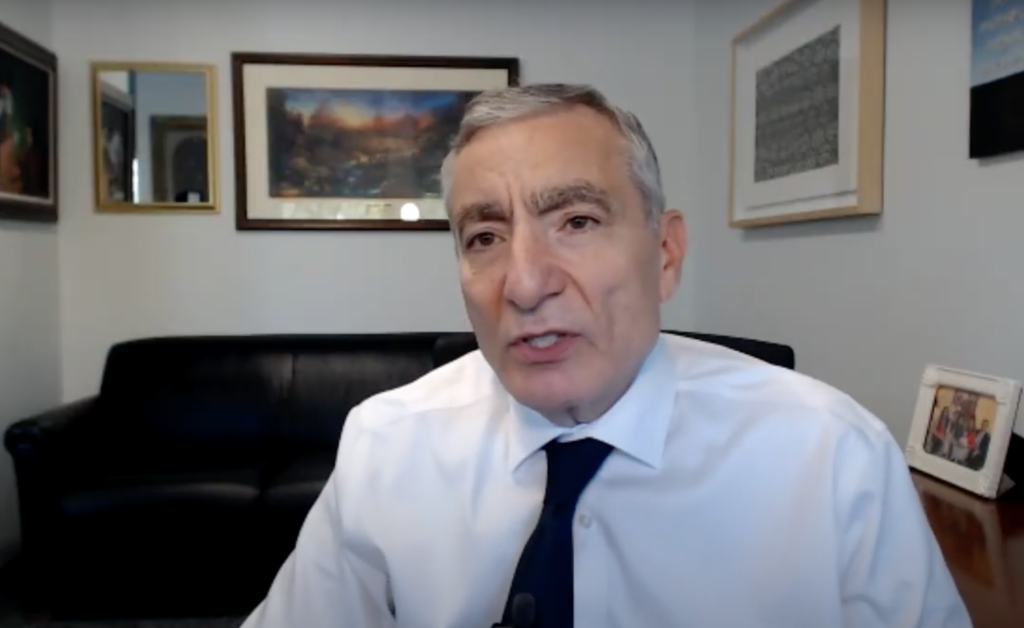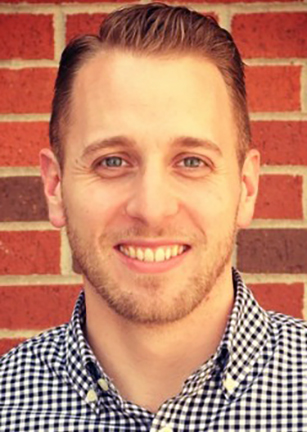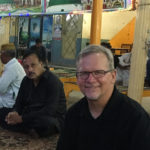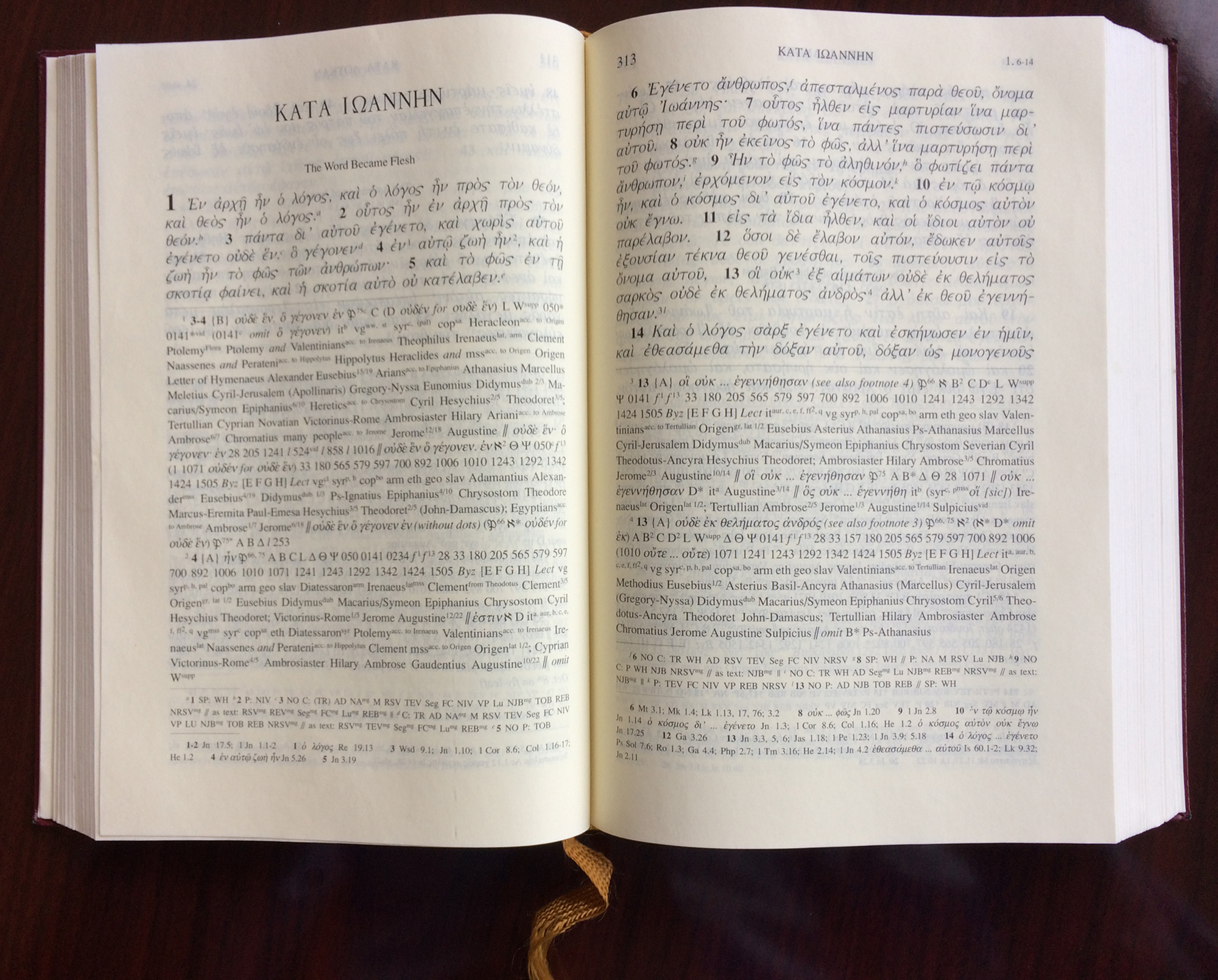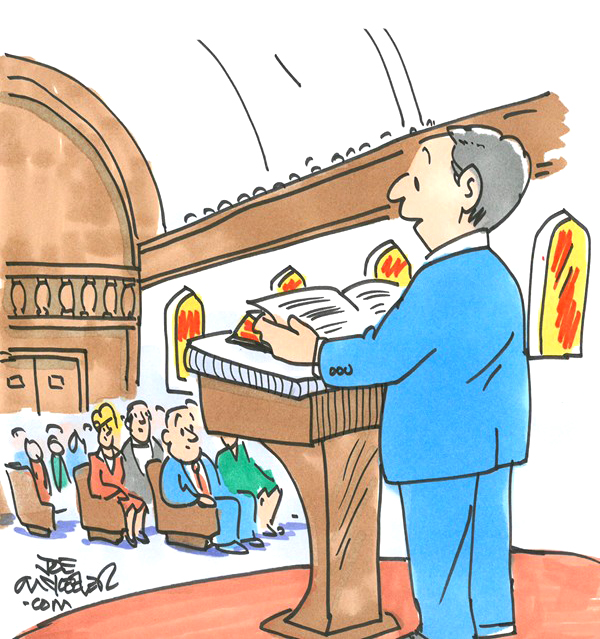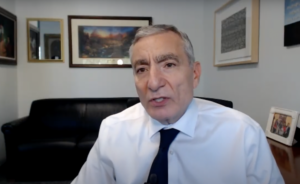
HOUSTON (BP) – In an unassuming office on the campus of Rice University, you can often find professor James Tour on a Zoom call. Is he chatting with other scientists around the world about his groundbreaking research in nanotechnology? Maybe. But more often than not, he’s talking with a stranger about the resurrection of Christ.
Whenever he has the opportunity – on his website, at a lecture or at the end of one of his many YouTube videos – Tour invites anyone who doesn’t believe in the resurrection to talk with him about it. Seekers connect with him from all over. The only stipulation to receive an hour of one-on-one time with one of the world’s leading scientists? You must be curious about the resurrection.
“You need a quiet location, a Wi-Fi connection and a camera turned on,” he tells them. “When they agree to that, I meet with them.”
Tour, who calls himself a Messianic Jew, teaches chemistry, computer science and nanoengineering at Rice. He has received his share of accolades, such as being named “Scientist of the Year” by R&D Magazine in 2013 and being inducted into the Royal Society of Chemistry in 2020, just to name two.
He holds more than 200 patents. But he’s a lot quicker to mention another number – the 107 people who received Christ last year after spending an hour with him.
Tour has a “burning desire to see people saved,” he told Baptist Press. “As Rachel cried out, give me children or I die. Lord, give me children, or I die,” he said, quoting Genesis chapter 30.
Not all of Tour’s resurrection conversations are on Zoom. Many of them are at his home on Sundays.
For 25 years, he has taught a Sunday School class at West University Baptist Church near the Rice campus. He and his wife invite the class – which can number upwards of 80 people – to their home for lunch after church. Many seekers accept the invitation, where they hear Tour share the Gospel by way of the resurrection.
Tour often begins by using the illustration of a bridge – man on one side, God on the other, a chasm of sin in between.
“But I always funnel it right into the resurrection of Jesus Christ,” he said. “The last verse that I share is Romans 10:9. ‘If you confess with your mouth that Jesus is Lord, and believe in your heart that He’s risen from the dead, you shall be saved.’ This is exactly where the Scriptures lead us to. It is not Jim Tour’s prescription. It is exactly where the Scriptures lead us to.”
The resurrection forms the foundation for the other crucial doctrines of the Christian faith, he believes.
“We do not have to convince them of the Trinity,” he said. “We do not have to convince them of the virgin birth. We do not have to convince them of the Noah’s Ark story. None of that. That’s never on the table for me.
“It is those two things – the lordship of Jesus and the resurrection of Jesus Christ. And I go right after the resurrection, because once the resurrection is established, the lordship is clear.”
He lays out all the evidence for Jesus’ literal death and bodily resurrection. The fact that Roman soldiers were skilled in the practice of crucifixion, so there was no way Jesus was still alive when he was placed in the tomb. The fact that Thomas was able to feel and see the wounds in Jesus’ hands and side. The fact that Jesus appeared to more than 500 people after the resurrection and that He even ate with them. The fact that secular historians of the time affirm that Christ’s followers were willing to die rather than deny the resurrection.
“I would die for what I believe,” Tour said. “But these men and these women were not dying for what they believed to be true. They were dying for what they knew to be true. Because they saw it with their own eyes. They saw Jesus risen from the dead. And nobody dies for what they know to be a lie.”
Tour goes through this narrative with different people each week. Most of them are highly educated, he said. The conversation takes 30-40 minutes.
“I see people go from not believing in the physical resurrection of Jesus Christ to believing in the physical resurrection of Jesus Christ based upon this 30-minute conversation…,” he said.
“I think why they come to believe, to embrace the resurrection is truth, is because the truth of the resurrection was already written on their hearts,” he said. “It’s already there. I’m just bringing them to a point to confess to what’s already there.”
Tour then leads the person in a prayer patterned after Romans 10:9.
“Once they have prayed that prayer,” he said, “it’s like a seed that’s sitting here in your heart. That seed opens. Now, when you pray that prayer, now something is gonna start growing.”
Tour reassures each new convert that their faith doesn’t have to be very big.
“I don’t have a hundred percent assurance of anything in this life,” he tells them. “I don’t believe anything a hundred percent. For all I know, we are living in a matrix.”
He then tells the story from Mark 9 about the man who asks Jesus to heal his son. Heal my son “if you can,” the man asks.
“And Jesus says to him, ‘If you can? All things are possible to him who believes.’
“And the man says something very profound,” Tour said. The man says, “’Lord, I believe, help my unbelief’ … meaning that I do believe, but you know, I’m not a hundred percent. …
“Jesus didn’t say, ‘Well, you go away; when you’re a hundred percent, come back, I’ll heal your son.’ Jesus immediately healed his son.
“I don’t know what percentage belief you have in the resurrection. Maybe it’s only 20 percent. That’s good enough. The Lord’s gonna help your unbelief.”
Tour then assigns homework to each person who prays to receive Christ – 15 minutes of Bible study and meditation each morning. He has them start in John 1. He tells them to be prepared for a change in their life and behavior.
Paul asserts in 1 Corinthians that the resurrection is the most important thing, Tour said. That’s why he believes it should be ground zero for any conversation about the Gospel.
“This is God’s prescription for salvation,” he said. “Why wouldn’t you use it?”
